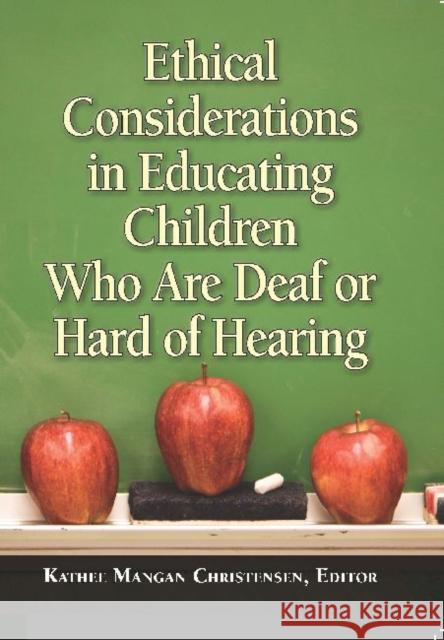Ethical Considerations in Educating Children Who Are Deaf or Hard of Hearing » książka
Ethical Considerations in Educating Children Who Are Deaf or Hard of Hearing
ISBN-13: 9781563684791 / Angielski / Twarda / 2011 / 232 str.
The education of deaf or hard of hearing children has become as complex as the varying needs of each individual child. Teachers face classrooms filled with students who are culturally Deaf, hard of hearing, or post-lingually deaf; they might use American Sign Language, cochlear implants, hearing aids/FM systems, speech, Signed English, sign-supported speech, contact signing, nonverbal communication, or some combination of methods. Educators who decide what tools are best for these children are making far-reaching ethical decisions in each case. This collection features ten chapters that work as constructive conversations to make the diverse needs of these deaf students the primary focus. The initial essays establish fundamental points of ethical decision-making and emphasize that every situation should be examined not with regard for what is "right or wrong," but for what is "useful." Absolute objectivity is unattainable due to social influences, while "common knowledge" is ruled out in favor of "common awareness." Other chapters deal with the reality of interpreting through the professional's eyes, of how they are assessed, participate, and are valued in the total educational process, including mainstream environments. The various settings of education for deaf children are profiled, from residential schools to life in three cultures for deaf Latino students, to self-contained high school programs. Ethical Considerations in Educating Deaf Children Who Are Deaf or Hard of Hearing offers an invaluable set of guidelines for administrators and educators of children with hearing loss in virtually every environment in a postmodern world.











